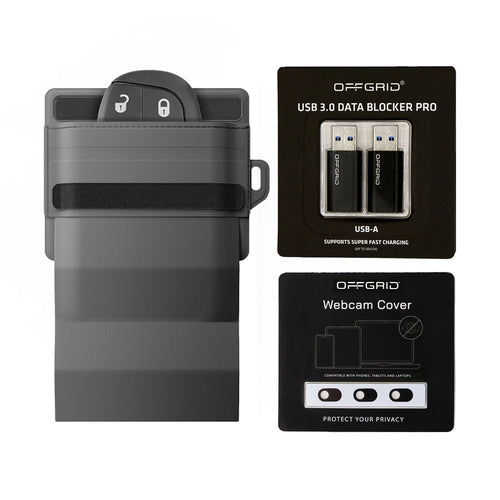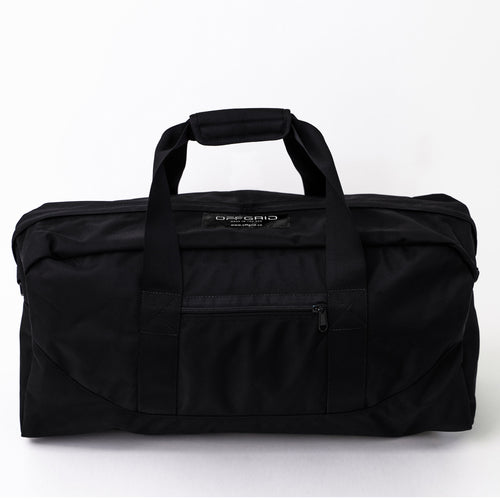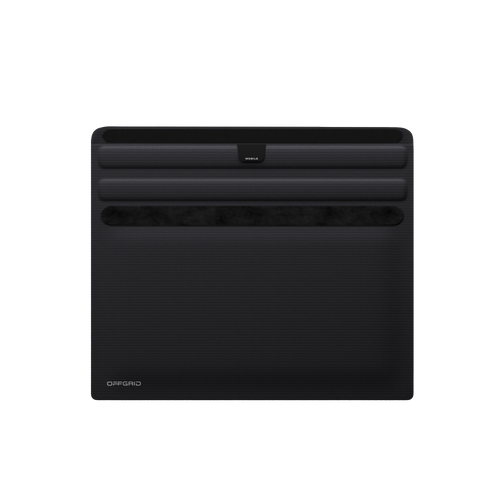Faraday bags have become a go-to tool for people who want to protect their devices from tracking, hacking, and unwanted data leakage. They’re simple to use and incredibly effective, but there’s also a lot of confusion about what they actually do. Some of the myths floating around online keep people from understanding how valuable proper signal-blocking gear really is.
Let’s clear things up. Here are the most common misconceptions about Faraday bags, and what’s actually true.
Myth 1: Faraday Bags Are Just Fancy Phone Cases
A regular phone case protects you from drops. A Faraday bag protects your data, location, and wireless exposure by blocking radio signals like GPS, WiFi, Bluetooth, NFC, RFID, and cellular.
They’re not even in the same category.
A real Faraday bag uses layered conductive materials that form a sealed RF barrier. When the device is inside and the bag is closed properly, signals can’t get in or out. That means no tracking, no remote access, and no silent data transfers.
Myth 2: Airplane Mode Does the Same Thing
Airplane Mode helps, but it doesn’t block everything. Some phones still keep low-level signals active, and software settings can be overridden or compromised.
A Faraday bag removes the software element completely.
Instead of relying on your phone to behave, you’re using physical RF shielding that shuts down communication at the hardware level. That’s the level of protection people rely on for digital privacy, secure travel, and investigative work.
Myth 3: Faraday Bags Only Matter for “High-Risk” People
You don’t need to be a journalist, investigator, or security pro to benefit from wireless isolation. Everyday people use Faraday bags to:
-
Block location tracking during travel
-
Prevent car key relay attacks
-
Stop retailers from reading RFID tags
-
Keep phones from listening or beaconing
-
Reduce exposure while carrying devices
If you care about privacy, you’re already in the group that benefits.
Myth 4: If a Bag Works Once, It Always Works
Not all Faraday bags are built the same, and cheap ones lose effectiveness quickly. Poor stitching, thin materials, and wear over time can create micro-gaps that leak signals.
High-quality Faraday bags use multiple layers of shielding and reinforced construction. That’s what keeps performance consistent. If you see a “Faraday pouch” that feels flimsy, it probably performs that way too.
Myth 5: You Can Just Wrap Your Phone in Aluminum Foil
Technically you can, but it won’t work well. Foil wrinkles, tears, and shifts—small imperfections create openings that let signals through. You also won’t know whether your device is actually shielded without testing.
Foil is fine for a science experiment.
It’s not a solution for privacy, security, or anti-tracking.
Myth 6: Faraday Bags Can Damage Your Phone
Putting a device in a Faraday bag doesn’t harm it at all. The only change is that the device won’t receive or transmit wireless signals while inside.
If someone claims Faraday bags cause battery damage, here’s the truth: phones use more power when they’re constantly searching for signal without proper shielding. A real Faraday enclosure stops that cycle completely and keeps the battery static.
Myth 7: Faraday Bags Are Only for Phones
Faraday protection matters for more than phones. People use bags to secure:
-
External hard drives
-
Passport RFID chips
-
Drones and controllers
Any device that communicates wirelessly can leak data wirelessly.
Myth 8: If a Bag Doesn’t Block One Signal, It’s Useless
Different signals operate at different frequencies. Some cheap bags only block a narrow band, which is why they fail when tested against multiple technologies.
A proper Faraday bag should block all major RF signals, including:
-
5G / 4G / LTE
-
GPS
-
WiFi
-
Bluetooth
-
RFID
-
NFC
-
UHF and VHF bands
If you’re evaluating one, look for shielding performance across a wide frequency range.
Final Thoughts
Faraday bags aren’t magic, and they aren’t complicated. They’re a physical solution to digital problems. When you remove wireless exposure, you close the door on tracking, data theft, and remote access - no apps, no settings, no guesswork.
If you’re serious about privacy, investing in a high-quality Faraday bag is one of the simplest and most reliable steps you can take.




